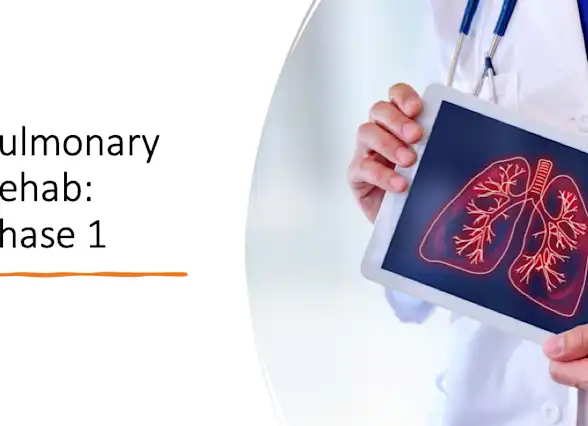Pulmonary Rehabilitation, Phase 1
Phase 1 of pulmonary rehabilitation (rehab) is inpatient rehab and begins when your loved one is still in the hospital.
Get insurance benefits, legal documents, and medical records in one place

Pulmonary Rehabilitation, Phase 1
INPATIENT REHABILITATION
Typically occurs within a hospital setting and is focused on individuals who are acutely ill or have recently undergone significant medical interventions. This phase often starts during or immediately after a hospital stay for a respiratory crisis or surgery related to lung conditions.
In this phase, the primary goals are to stabilize your loved one's medical condition, optimize their respiratory function, and initiate the early stages of rehabilitation (rehab). Medical professionals closely monitor and manage your loved one's health, including respiratory support, medications, and any necessary interventions.
The rehab process during Phase 1 involves basic mobility exercises, breathing techniques, and early ambulation (getting up and walking around) to prevent complications such as muscle weakness and respiratory decline.
Multidisciplinary teams, including physicians, nurses, respiratory therapists, and physical, occupational, and speech therapists, collaborate to address the specific needs of your loved one. Education on respiratory self-management and coping strategies may also be introduced to both you and your loved one.
The duration of Phase 1 is relatively short, with the ultimate goal of transitioning your loved one to Phase 2, which involves more comprehensive and structured outpatient rehab.
For more details on Phase 2, see our associated Guide: Pulmonary Rehabilitation, Phase 2.
No content in this app, regardless of date, should ever be used as a substitute for direct medical advice from your doctor or other qualified clinician.
Get more support and guidance on insurance benefits, medical records and legal forms.
Helpful brings together your insurance benefits, legal documents, and medical records in one personalized place — so you always know what you have, and never have to search again.

Technology for Health Tasks. Mental Health for the Tough Stuff.
Helpful connects your medical records, insurance, and caregiving tasks automatically. And when you need more than logistics, a therapist is here to guide you.
In-Network and Covered
For Individuals, Couples and Families
HIPAA Compliant, Data Stays Private






